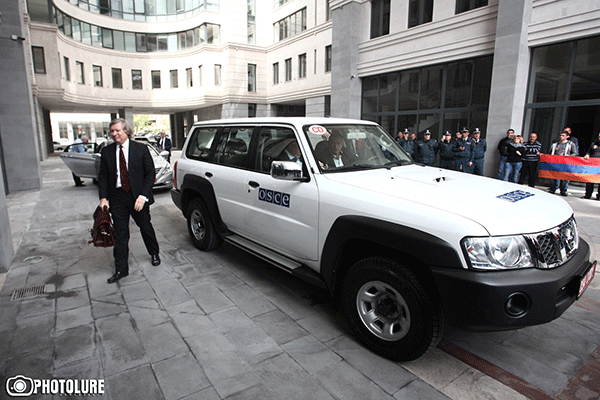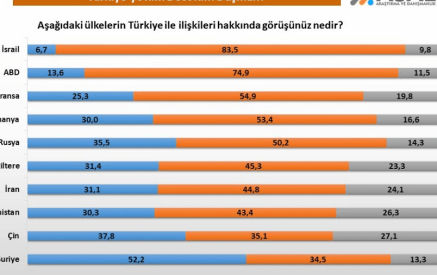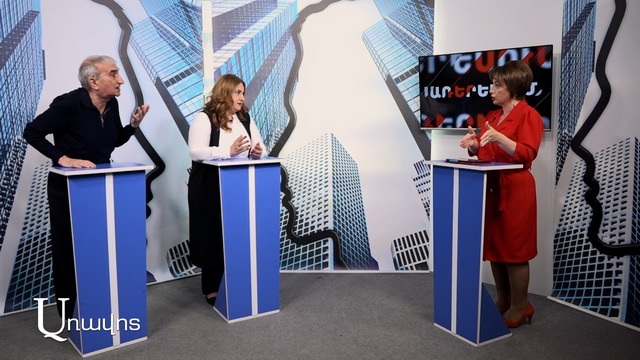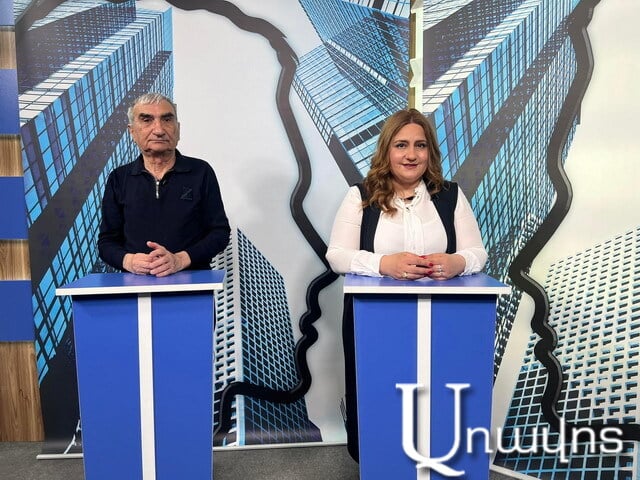An exclusive interview of “Aravot” with James Warlick, the U.S. co-chair of the OSCE Minsk Group
– Secretary Kerry in his meeting with Russian FM Lavrov among other issues discussed the NK issue. What are the substantive agreements reached in addition to agreeing on the need for continuing the talks?
– The Minsk Group co-chair countries share the view that the sides need to strictly adhere to the ceasefire, implement the commitments of the Vienna and St. Petersburg meetings to reduce the risk of violence, and make progress in substantive talks. Secretary Kerry and FM Lavrov reviewed the outcomes of recent meetings with the Presidents of Armenia and Azerbaijan and discussed next steps within the Minsk Group format to advance these three goals.
– Turkish Foreign Minister Mevlüt Cavusoglu is urging the OSCE MG Co-Chairs to support Azerbaijan’s position. He even stated that the Co-Chairs will soon be visiting Ankara. We are aware of Turkey’s biased approaches on NK issue and it is interesting for us to know what could be motives for the MG Co-Chairs in discussing the NK issue with official Ankara at this stage.
Read also
– The Minsk Group Co-Chairs have visited the capital of each Minsk Group member to hold consultations on the Nagorno-Karabakh peace process. In the past year and a half, we have been to every Minsk Group capital except Ankara and are now exploring dates to travel there. We value the opportunity to exchange views with Turkish officials and to enlist their support for our efforts to advance substantive talks on a settlement and implement measures to reduce the risk of violence.
– Mr. Ambassador, On May 16th, after the meeting in Vienna another trilateral meeting was held in St. Petersburg on June 20 with Putin, Sargsyan, and Aliyev. To what extent do you know the specifics about the meetings and can we consider these negotiations a continuation of the agreements that were placed in Vienna?
– In their joint statement from the St. Petersburg summit, the Presidents reaffirmed their agreements from the meeting in Vienna aimed at stabilizing the situation along the Line of Contact and Armenia-Azerbaijan border and facilitating progress in substantive talks. The Co-Chairs continue to work with the sides on advancing these agreements.
– Recently, Bridget Brink, Deputy Secretary of State of European and Eurasian Affairs stated that the USA is contributing to the realization of the agreements reached in Vienna and St. Petersburg between Armenia and Azerbaijan’s Presidents, Serzh Sargsyan and Ilham Aliyev and is doing everything to solve the problem. He assured that Washington is proposing to sides to act in the frame of agreements. Are there any disagreements about the NK settlement between the U.S. and Russia?
– The United States, Russia, and France share the goal of mediating a peaceful resolution to the Nagorno-Karabakh conflict, and we coordinate at the highest levels. The Russians invited the Co-Chairs to the June 20 summit and I represented the United States.
– The officials in Baku, finally referred to borders incidents to study the idea of using mechanisms, which is considered as the American proposal. Azerbaijan’s President Aliyev recently spoke about the negotiations in St. Petersburg and stated, “Armenians think for anything related to mechanisms for investigating violations of the cease-fire as a precondition put forward at this stage, in such cases there are no mechanisms for investigating mechanisms. None of us can say that they believe that the mechanisms for anything I second what’s the point? Unless it would include a settlement freeze and an additional line of contact for anything Initiate Action, Azerbaijan, of course, will not make come to that.” Mr. Ambassador, in fact, this idea is rejected by Baku. Isn’t it time that the mediators avoid putting the sign of equality and balanced statements between the parties and call for a tough stance against Azerbaijan?
– We have called on the sides to fulfill their commitments from the meetings in Vienna and St. Petersburg. These commitments include expanding the OSCE Monitoring Mission, finalizing a proposal to establish an investigative mechanism, and continuing substantive talks that can lead to a comprehensive settlement. We were encouraged that the sides resumed substantive talks in St. Petersburg. The next step is to implement the expansion of the Monitoring Mission. In synchronization with these efforts, the Co-Chairs have not stopped working with the sides on the investigative mechanism proposal, nor will we stop.
– The rejection from official Baku to implement a border incident monitoring mechanism means that sooner or later Azerbaijan will once again take military actions. Under these conditions, what steps do you expect from the Co-chairs?
– To be clear, we expect the sides to honor their commitment to strictly adhere to the ceasefire, which has largely held since the meeting in Vienna. Any return to the use of force by the sides will be strongly condemned by the Co-Chairs and the co-chair countries.
EMMA GABRIELYAN
























































